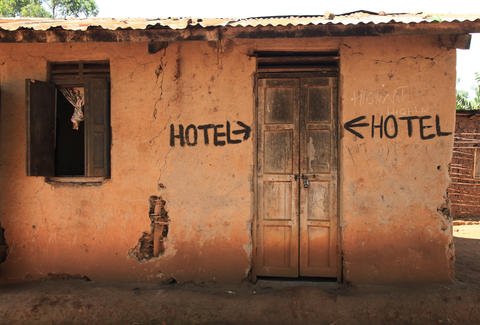On Accommodation - Part 1
One of the most important aspects of any trip is sleep. Sure, sightseeing, visiting friends, and experiencing a new place are all wonderful, but it is impossible to do any of these without sleep. Travel is tiring, and after a full day of exploring a new city, often nothing sounds better than collapsing on a comfortable bed for the night. This post will cover how I like to approach the process of finding a good place to sleep for each night during my travels. In general, I have five goals for each place I sleep:
- To stay well-rested
- To stay somewhere safe
- To stay somewhere central
- To meet other travelers or friends
- To avoid paying twenty-nine metric fucktons for the previous four criteria

Sometimes not all of these goals are possible, but they are a good baseline to strive toward.
One of the absolute best options, if possible, is to stay with friends who live in the city you plan to visit. Meeting up with people who live in your destinations not only offers an opportunity to reconnect with friends, but also to learn about good places to eat, drink, and sightsee.
In many places, however, staying with a friend isn't possible. When this is the case, there are a multitude of accommodation options, from hostels to hotels to real BnBs to AirBnB to couch-surfing, and trying to decide which one is appropriate for each destination can be difficult.
I'll try to give a run-down of each type of accommodation and some other tips. In all cases reading TripAdvisor and any other reviews of properties is absolutely vital! Learn to trust the masses: There will always be one or two people who have bad experiences, but if the majority overwhelmingly recommends a property, it is likely to be good. Look at customers' pictures, and don't let your opinion of a property become tainted by a single review claiming the property is the equivalent of the Bates Motel. As always, the more reviews the better -- I avoid staying at properties with only one or two reviews if I can help it. Tripadvisor is a great start, but branching out to other sites (such as Hostelbookers or Kayak) for reviews can also be a good idea if Tripadvisor is lacking.

My approach to trip-planning has been as follows:
- Use hotels for one-night stays.
- Use hostels for longer stays when I want to meet other travelers.
- If planning to take tours and do day-trips, avoid types of accommodation where I might feel obliged to spend more time with my host. This means hostels or hotels for busy and tightly-packed stays.
- Try to find friends to stay with when possible, provided I won't just be showing up for one night and then disappearing.
- Use AirBnB or Couchsurfing for longer stays if reasonable options are available
- For some longer stays, stay at a hostel if it is in a fun location (or if the hostel is much more convenient)
- Include one hotel night for every 10-15 days of alternative accommodation to enable me to recharge
While following these six guidelines, my secondary goal is to keep my average spent per night below $60. Often I'll get it even lower than that. There are a remarkable amount of low-mid-tier hotels and options in most cities.
I'll continue this series with some additional tips and thoughts on accommodation soon.